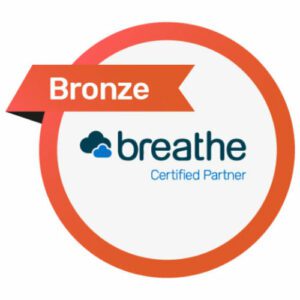Your HR Strategy

Employee Engagement
Have you thought about an employee engagement survey for your organisation?
It can help you to determine employee feelings and attitude; levels of motivation and commitment; satisfaction with the organisation and the working environment. An employee engagement survey can help you to capitalise on what is working and make improvements where things are not as good as they might be.
We can arrange for a free survey to go out to all of your employees, from your Company and with your Company logo. The responses will be anonymous and will be collated into a results dashboard which helps to analyse levels of employee satisfaction within your organisation.
Once we have collated all the results, we can provide a proposed action plan, with costs. It is then up to you whether you want to take any further action.
Policies
You might think policies are boring and a tick box to make sure you comply with employment law requirements.
In reality, clear and concise policies are guidance to employees (and others) as to “how we do things here”; what is and is not tolerated and encouraged within your business, and what is definitely not in line with your values.
Your policies protect you and your employees and form the basis for your day to day running, your customer relationships and they are key to the smooth running of your business. They should be living documents which are easy to understand and follow – and they can be used for the basis of staff training and development; marketing; achieving company goals and targets; and yes, they ensure compliance with statutory and legislative requirements.
We can review your policies; help you produce new ones (where necessary); update them as the law changes; help you to set up training plans based on the policies; set up employee working groups on particular areas of interest.
There are some policies which every business really should have in place – have you?


Wellbeing
The wellbeing of your staff should be high on the list of your priorities. What do we actually mean by wellbeing?
It is about health, of course – both physical and mental. This is personal to each individual, of course, but it is also tied in to a whole range of policies and practices and also to your company culture. Do you encourage staff to take proper breaks during the working day? Do you allow flexible working? Do you expect people to work outside of business hours? Do you train your managers to watch out for potential causes of concern. Wellbeing also covers finances – our financial wellbeing is critical to our mental health and there are things you can do for your employees to improve their financial wellbeing.
If you have concerns about the wellbeing of your employees – or you just want to make sure they are well looked after, then let’s talk about interventions (not necessarily costly) which can help.
Company Culture
Do you know what your company culture is? I am sure you know what you want it to be – but is that what you have actually got?
And how do you know? The first step is probably an Employee Engagement survey (see above), but there are a huge number of things you can be doing to improve your culture and build trust with your workforce. Policies and working procedures, improvement plans and working groups on subjects such as business ethics; flexible working; equalities, diversity and inclusion; environmental and social issues can all contribute to an improved company culture. You can review your internal communications; your opportunities for employees to collaborate, encouraging innovation; a framework for employees to raise concerns are all critical. Training your managers and giving them the time and resources (and reduced workload) to allow them to manage people properly – all of this contributes to company culture. It also encompasses your attitude to pay and benefits and how you approach leadership development and succession planning.
If you are interested in improving your company culture, then please contact me for a discovery call to find out how I can help.


Flexible Working
When we talk about flexible working, most people think about working from home or remotely; or hybrid working – but what else comes under flexible working
Not every business can accommodate working from anywhere other than the workplace – although there may be some jobs which can be done elsewhere. But there are many other things you can offer which come under the heading of flexible working- and your employees may have even more ideas. We all have things going on outside of work and many of those are made easier if work can be arranged around them – childcare; caring for elderly parents; caring for disabled family or friends. All of these might need reduced hours, or hours worked out of “normal” working hours. If we have a mobility restriction or some other adaptation is needed to help us to live life to the full, then that might be managed more easily in a different place, or at different times of day. The ways in which we can work flexibly include reduced hours; shift working; term-time only working; compressed hours; working remotely (from home, or elsewhere). All of these might be needed on a temporary or permanent basis. A business which can accommodate different requirements will find they have a happier and more productive workforce, with lower turnover and reduced sickness absence rates.
If your want a policy or plan for flexible working which suits your business, then please contact me.
Strategic HR support
What is HR strategy? Well, it really encompasses anything to do with the people in your business.
There are many, many things which can be included in your HR strategy. Some examples are: how you handle equalities, diversity and inclusion; how you manage your environmental impact and social responsibility to the community; how you manage change; your communications strategy; what records and people statistics you record and how you analyse them to improve your business; what technology you use to improve the productivity of your workforce (including HR specific technology); how you appear on social media and how your employees use their own social media; how you train and develop your employees and, In particular, your managers; what workforce planning and succession planning you have in place to build and improve your business into the future. Anything which involves or impacts your employees needs to be included in your HR strategy and you probably need HR advice on the best way to harness the best from your employees.
If you want to build an HR strategy which helps your business to thrive and grow, then we need to talk.

If you would like to discuss any employment issues, then don’t hesitate to give me a call.



